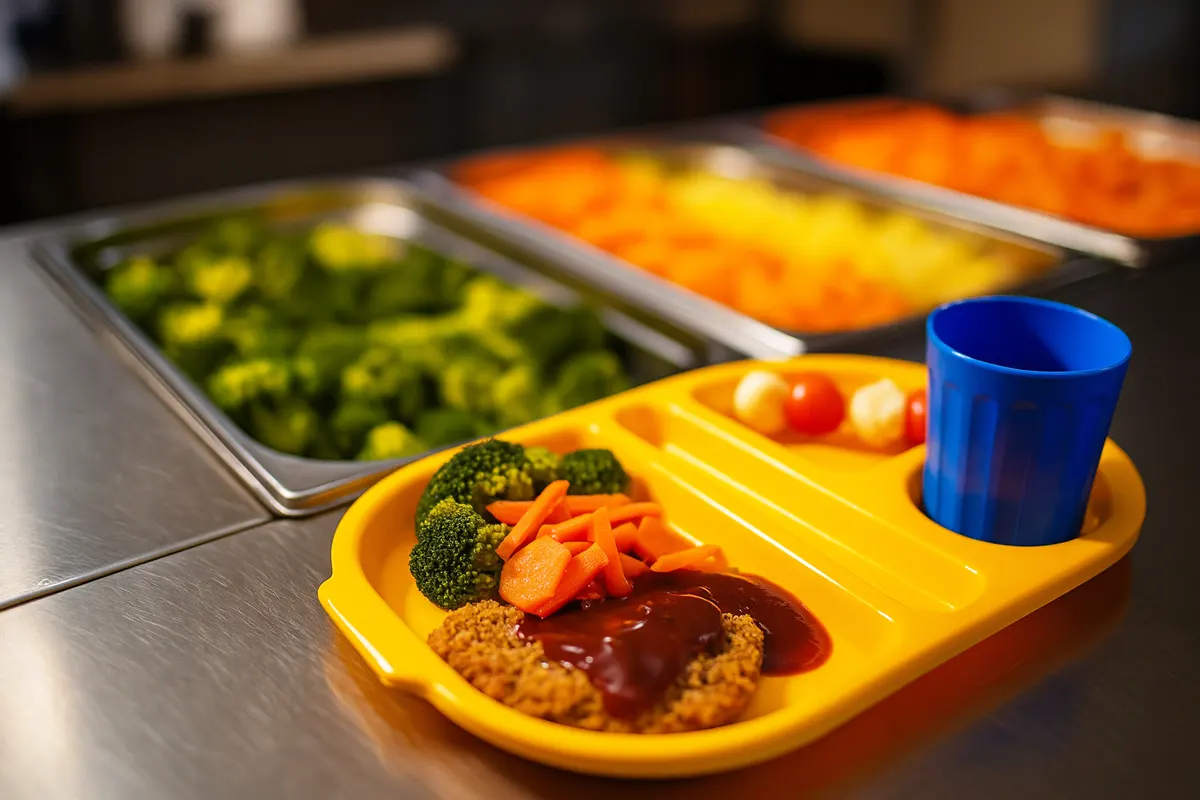Free School Meals UK: Schools Filling the Funding Gaps

Free School Meals UK
Government’s Expansion Plan Faces Financial Hurdles
From next autumn, the UK Government plans to extend free school meals to an additional 500,000 children. While this initiative has been widely welcomed, educational institutions are now under growing pressure to compensate for funding shortfalls that threaten the quality and sustainability of meal provision.
Schools Subsidising Government Commitments
According to recent findings from LACA – The School Food People – many schools are being forced to bridge the gap between state funding and the actual cost of providing nutritious meals. In England, the Government currently allocates just £2.61 per free meal, significantly lower than the £3.20 provided in Wales and £3.00 in London.
Rising Costs and Impact on Meal Quality
LACA’s nationwide survey revealed the real consequences of this funding disparity:
- 88% of caterers have had to alter recipes due to affordability constraints
- 62% have substituted traditional proteins for cheaper alternatives
- 56% have reduced menu options to manage costs
In addition, the cost of a paid school meal has surged by over 20% in the last five years, placing further burden on families and institutions alike.
Staff Under Strain and Services at Risk
With increasing pressure on catering teams and limited resources, several local authorities have warned they might discontinue school meal services altogether. This would leave vulnerable children without daily access to a hot, nutritious lunch.
Eligibility and Policy Changes
Currently, households in England receiving Universal Credit must earn below £7,400 annually (post-tax, excluding benefits) to qualify for free school meals. Additionally, all pupils in Reception, Year 1, and Year 2 receive free meals regardless of household income.
From September next year, the eligibility will extend to all pupils from families on Universal Credit. This could potentially raise the number of beneficiaries to over 2.17 million children – more than one in four pupils in England, according to the Department for Education (DfE).
Concerns Over Sustainability
While the expansion is a positive step towards equity, LACA warns that it could “stretch the system too thin” if funding is not increased. They urge the Government to:
- Raise the funding rate to at least £3.45 per meal
- Index-link the funding to match inflation rates
- Ringfence the allocated funds to prevent reallocation within school budgets
Calls for a Realistic Review of Meal Costs
Paul Whiteman, General Secretary of the school leaders’ union NAHT, criticised the Government’s modest increase of just 3p per meal from September. He highlighted that many schools would still be forced to subsidise meal costs from their own stretched budgets.
Education charity School Food Matters estimates that the actual cost of a hot school meal is now around £3.16. School heads face difficult choices: maintain food quality at the risk of cutting back elsewhere or reduce quality to stay within budget.
A Balanced Approach is Urgently Needed
As the UK prepares to support more children through its free school meals initiative, a fair and sufficient funding model must be prioritised. The true cost of providing healthy meals should be accurately assessed and funded accordingly – ensuring that no child is left behind.




